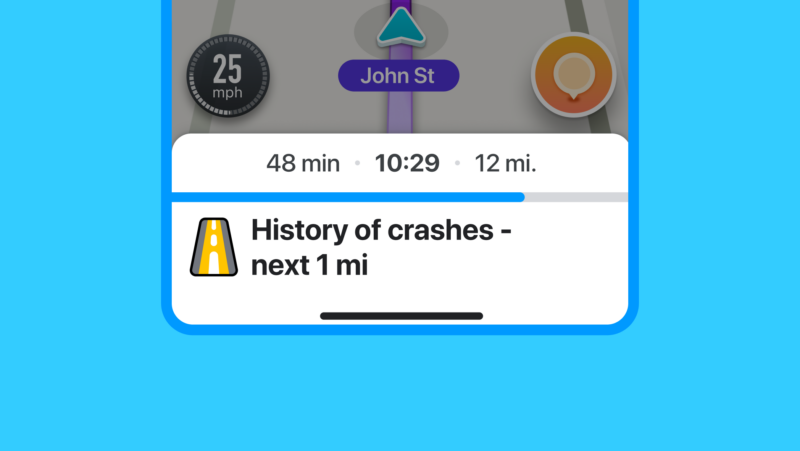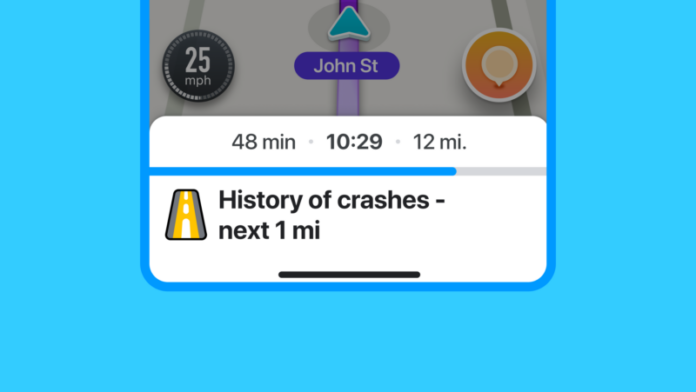
Enlarge / The Waze crash history alerts look like this. (credit: Waze)
Traffic navigation app Waze is adding a new feature to its toolbox today. It's called crash history alerts, and it's meant to warn drivers about dangerous hotspots, based on a combination of historical data plus road and traffic data.
Originally an independent startup, in 2013 Google purchased the Israeli company for $1.15 billion, perhaps beating Apple to the punch. Even before the purchase, Waze was becoming an Ars reader favorite thanks to more advanced traffic rerouting than either Google Maps or Apple Maps.
It has not been entirely smooth sailingdriving; for a while the app was infamous for asking drivers to make difficult left turns across busy multi-lane roads and routing cars through once-quiet neighborhoods as shortcuts, aggravating the people who live in those neighborhoods.
Read 3 remaining paragraphs | Comments
Ars Technica - All contentContinue reading/original-link]




